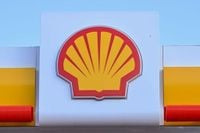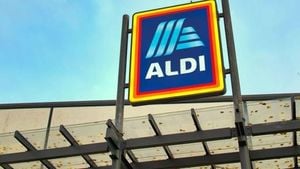On June 25, 2025, rumors of a potential megamerger between two of the United Kingdom’s largest oil giants, Shell and BP, sent ripples through the energy sector and financial markets. The Wall Street Journal reported that Shell was in early-stage talks to acquire BP in what would be the biggest energy deal of the century, potentially exceeding $80 billion. Such a merger would mark a landmark event in the oil and gas industry, combining two supermajors and positioning Shell to better compete with U.S. powerhouses Exxon Mobil and Chevron.
However, shortly after the report, Shell swiftly denied the talks were taking place. A spokesperson for Shell stated unequivocally, “This is further market speculation. No talks are taking place.” They reiterated the company’s focus on “capturing the value in Shell through continuing to focus on performance, discipline, and simplification.” This denial came amid a flurry of market activity, with BP’s shares initially jumping nearly 2% before giving back some gains, while Shell’s shares dipped slightly.
The potential deal stirred excitement because of the strategic fit between Shell and BP, both headquartered in London and boasting extensive global footprints. Shell ranks No. 13 on the Fortune Global 500, while BP sits at No. 25. Yet BP has faced significant financial headwinds in recent years. Its stock price has declined 17% over the past 12 months and 25% over the last decade, with a market capitalization of around $82 billion. This is dwarfed by Exxon’s $470 billion, Chevron’s $250 billion, and even Shell’s $211 billion market cap. Such figures have raised questions about BP’s long-term viability as a standalone entity.
BP’s struggles are well-documented. The company has weathered investor activism, notably from Elliott Investment Management, and endured setbacks like the 2010 Deepwater Horizon disaster, which severely damaged its reputation and finances. In 2020, BP pivoted sharply toward renewables, aiming to reduce oil and gas production by 40% by 2030. However, this strategy faced challenges amid shifting market dynamics and the global energy transition.
In early 2025, BP launched a “hard reset” strategy under CEO Murray Auchincloss, who took the helm in late 2023 after serving as CFO. Auchincloss has steered the company back toward fossil fuels, doubling down on oil and gas investments in regions like the United States and the United Arab Emirates. “We just chased too much. We should have narrowed that,” Auchincloss admitted in a recent interview with Fortune. “The last thing I’d say is stick with what you’re good at and continue to grow that as you build new businesses.”
BP is actively reshaping its portfolio, selling its U.S. onshore wind assets, divesting a 50% stake in its solar business Lightsource, and offloading much of its offshore wind holdings through a joint venture with Japanese utility JERA. It also sold a $1 billion stake in the TANAP gas pipeline and is reviewing its Castrol lubricants business. Plans are underway to sell its retail fueling operations in Austria. Meanwhile, BP chairman Helge Lund, who championed the company’s earlier push into renewables, is expected to step down by 2026.
Shell, for its part, has been more cautious about acquisitions. CEO Wael Sawan, speaking in May 2025, emphasized that the “bar is set very high” for any deal and that capital would be better used to boost share buybacks. Shell is also considering divesting parts of its chemicals business, which includes key assets in Texas, Louisiana, Germany, the U.K., and the Netherlands, to shore up capital.
The oil and gas sector has seen some blockbuster deals in the past. The current record is held by the 1999 Exxon-Mobil merger, valued at over $80 billion. BP itself set a then-record in 1998 by acquiring Amoco for nearly $50 billion. Yet the industry landscape has changed dramatically since those deals, with increasing pressure from climate change policies, energy transition demands, and volatile markets.
Despite Shell’s denial, sources familiar with the matter told Dow Jones & Company that talks between company representatives were active and that BP was carefully considering the approach. Such a union would create a formidable competitor to Exxon and Chevron, consolidating two supermajors with complementary assets and global reach. The potential merger would reshape the energy sector and signal a strategic recalibration amid ongoing uncertainties about the future of fossil fuels.
Still, both companies appear focused on their own paths. Auchincloss remarked, “I can’t really say anything other than we’re focused on our own business, our strategy, and driving it forward. Obviously, the media likes to speculate about this. Investment bankers like to speculate about this. But we’re just focused on our own business right now. We’re happy to have launched the [reset] strategy, and we’re going to drive forward and grow cash flow, and that’ll make us strong and independent.”
With Exxon and Chevron seen as the only other players large enough to acquire BP, the rumor mill is likely to keep churning. Meanwhile, Shell’s emphasis on performance and simplification suggests it will proceed cautiously, weighing any major moves against shareholder value and market conditions. The energy world is watching closely, waiting to see if this rumored megamerger will materialize or remain just another chapter in the ongoing saga of oil industry consolidation.
For now, the story underscores the immense pressures and strategic shifts faced by legacy energy companies navigating a complex transition. Whether Shell and BP will join forces or continue independently, the stakes are high, and the outcome will have lasting implications for the global energy landscape.





